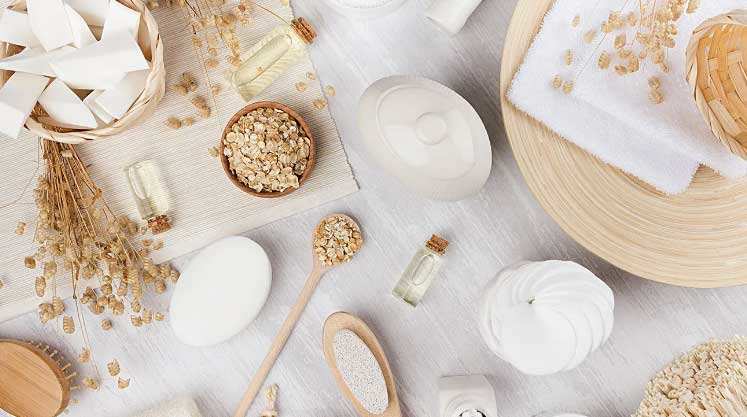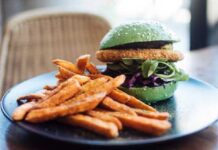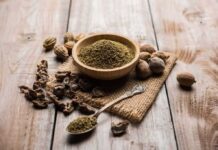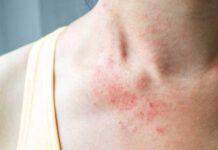
What Are Oatmeal Baths?
Since ancient Roman times, people have been using oatmeal for skin care. Today, special oatmeal formulations are used in a variety of skincare products, from lotions to bath soaps.
Oatmeal contains compounds that have anti-inflammatory and moisture-retaining properties. You can purchase ready-made oatmeal baths or read on to learn how to make your own to enjoy oatmeal’s skin-soothing benefits.
How Does Oatmeal Help Skin?
In 1945, colloidal oatmeal compounds started becoming more widely available for treating skin conditions, according to the Journal of Drugs in Dermatology.
Colloidal oatmeal is the oatmeal preparation that’s commonly used in lotions as well as for baths. Specifically, it’s oatmeal that’s been finely ground or chopped and suspended in liquid.
Colloidal oatmeal has both anti-inflammatory and antioxidant properties. This is thanks in large part to the presence of compounds that include vitamin E, ferulic acid, and aventhramides. The Journal of Drugs in Dermatology reports that aventhramides are the main antioxidant in oats.
Even in small amounts, the compounds found in colloidal oatmeal inhibit tumor necrosis factor-alpha and interleukin-8 release, which have been associated with conditions like psoriasis. These compounds also reduce itching.
In addition to these compounds, colloidal oatmeal contains starches and beta-glucan. These are naturally present in oats. They help to hold in water, which enhances the moisturizing abilities of oats.
Colloidal oatmeal also contains water-binding polysaccharides, which are a form of sugar, as well as compounds called hydrocolloids. These compounds also create a protective barrier to keep the skin from losing excess water.
Other benefits of colloidal oatmeal include:
- acting as a buffering agent, which helps skin maintain a normal pH
- providing antiviral activity, such as helping treat molluscum contagiosum skin rashes
- reducing the rate of histamine release in mast cells, which are present in allergic skin reactions
- cleansing the skin, thanks to the presence of saponins that have soap-like activity
Colloidal oatmeal is a natural solution to many health concerns. For example, a 2012 study showed that colloidal oatmeal helped to reduce the use of corticosteroid and calcineurin inhibitors in patients with atopic dermatitis.
What Conditions Does Oatmeal Treat?
People use oatmeal to treat a variety of skin conditions, including:
- atopic dermatitis
- chickenpox
- contact dermatitis
- diaper rash
- dry, itchy skin
- eczema
- psoriasis
- reactions to insect bites and plants, such as poison oak
In addition, cosmetics manufacturers add colloidal oatmeal to shampoos and shaving gels to provide a skin-soothing treatment. These products are usually available without a prescription and are sold at most grocery stores, pharmacies, and online retailers.
Are Oatmeal Baths Safe?
The U.S. Food and Drug Administration (FDA) has declared that oatmeal baths are safe and effective treatments. However, it’s still possible that a person could experience an allergic reaction to the components of oatmeal.
An allergic reaction to oatmeal would cause symptoms like itching, swelling, and redness. If this occurs, wash your skin with soap and water and discontinue the use of oatmeal-containing products.
Providing there are no signs your baby is allergic to topical oatmeal, bathing with colloidal oatmeal is usually safe. You could try a “patch test” prior to bathing your child in an oatmeal bath.
To do this, apply some dissolved colloidal oatmeal to a small patch of skin, such as the back of the hand. Rinse the oatmeal preparation off after about 15 minutes and observe your child for any signs of reaction.
You’ll want to avoid any bath preparations that contain added fragrances, as they can be irritating to the skin. If you aren’t sure if oatmeal baths are a good idea for your little one, talk to their pediatrician.
What Products Use Oatmeal?
A variety of oatmeal products are available to moisturize, cleanse, and protect the skin. Examples of these products include:
- bath products
- face masks
- face scrubs
- face washes
- lotion
- moisturizers
- shaving gels
- skin scrubs
Many of these products are advertised for those with irritated or problem skin, such as those with eczema.
How To Make Your Own Oatmeal Bath
If you’re feeling thrifty or crafty, you can make your own colloidal oatmeal bath at home. Use the following steps to create this skin-soothing bath.
- Purchase rolled oats. You can find these at most grocery stores or health food markets. The oats should be free of flavorings, chemicals, sugars, and salts.
- Grind the oats into a fine powder using a coffee grinder, blender, or food processor. You’ll know when you’ve ground the oats finely enough when a tablespoon of oats dissolves easily in hot water.
- Draw your bath with warm (but not hot) water. Start by adding a half-cup of oats to the bath. You can add up to one and a half cups to the tub for soaking.
- Some people put the oats into a pantyhose leg tied at the top, which can make the bath less messy after a soak.
- Limit bathing time to 15 minutes to avoid moisture loss.
- Pat skin dry with a towel and apply moisturizer after getting out of the bath.
Avoid scrubbing your skin, which can further irritate it.
Conclusion
Oatmeal baths are a make-at-home remedy you can use to treat a variety of skin conditions from psoriasis to eczema. Oatmeal can be moisturizing, soothing, and inflammation-relieving for the skin.
Colloidal oatmeal can also be incorporated in a variety of skin care preparations.
While oatmeal baths can be skin-soothing, they aren’t a treatment for all skin conditions. Talk to your doctor if your rash isn’t going away (or is getting worse).
Sources:
- Eczema and bathing. (n.d.).
nationaleczema.org/eczema/treatment/bathing/ - Fowler J. (2014). Colloidal oatmeal formulations and the treatment of atopic dermatitis.
jddonline.com/articles/dermatology/S1545961614P1180X - Lim D. (2011). Oatmeal.
dermnetnz.org/topics/oatmeal/ - Pazyar N. et al. (2012). Oatmeal in dermatology: A brief review. DOI:
10.41003/0378-6323.93629 - Reynertson KA, et al. (2015). Anti-inflammatory activities of colloidal oatmeal (Avena sativa) contribute to the effectiveness of oats in treatment of itch associated with dry, irritated skin.
ncbi.nlm.nih.gov/pubmed/25607907
Important Notice: This article was originally published at www.healthline.com by Rachel Nall, MSN, CRNA where all credits are due. Medically reviewed by Debra Rose Wilson, Ph.D., MSN, R.N., IBCLC, AHN-BC, CHT
Disclaimer
The watching, interacting, and participation of any kind with anything on this page does not constitute or initiate a doctor-patient relationship with Dr. Farrah®. None of the statements here have been evaluated by the Food and Drug Administration (FDA). The products of Dr. Farrah® are not intended to diagnose, treat, cure, or prevent any disease. The information being provided should only be considered for education and entertainment purposes only. If you feel that anything you see or hear may be of value to you on this page or on any other medium of any kind associated with, showing, or quoting anything relating to Dr. Farrah® in any way at any time, you are encouraged to and agree to consult with a licensed healthcare professional in your area to discuss it. If you feel that you’re having a healthcare emergency, seek medical attention immediately. The views expressed here are simply either the views and opinions of Dr. Farrah® or others appearing and are protected under the first amendment.
Dr. Farrah® is a highly experienced Licensed Medical Doctor certified in evidence-based clinical nutrition, not some enthusiast, formulator, or medium promoting the wild and unrestrained use of nutrition products for health issues without clinical experience and scientific evidence of therapeutic benefit. Dr. Farrah® has personally and keenly studied everything she recommends, and more importantly, she’s closely observed the reactions and results in a clinical setting countless times over the course of her career involving the treatment of over 150,000 patients.
Dr. Farrah® promotes evidence-based natural approaches to health, which means integrating her individual scientific and clinical expertise with the best available external clinical evidence from systematic research. By individual clinical expertise, I refer to the proficiency and judgment that individual clinicians acquire through clinical experience and clinical practice.
Dr. Farrah® does not make any representation or warranties with respect to the accuracy, applicability, fitness, or completeness of any multimedia content provided. Dr. Farrah® does not warrant the performance, effectiveness, or applicability of any sites listed, linked, or referenced to, in, or by any multimedia content.
To be clear, the multimedia content is not intended to be a substitute for professional medical advice, diagnosis, or treatment. Always seek the advice of your physician or other qualified health providers with any questions you may have regarding a medical condition. Never disregard professional medical advice or delay in seeking it because of something you have read or seen in any website, video, image, or media of any kind. Dr. Farrah® hereby disclaims any and all liability to any party for any direct, indirect, implied, punitive, special, incidental, or other consequential damages arising directly or indirectly from any use of the content, which is provided as is, and without warranties.








